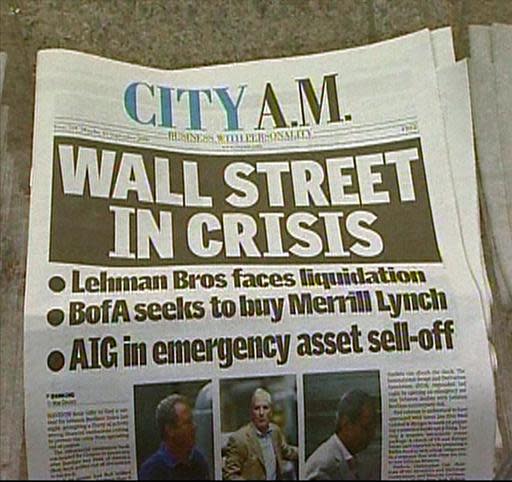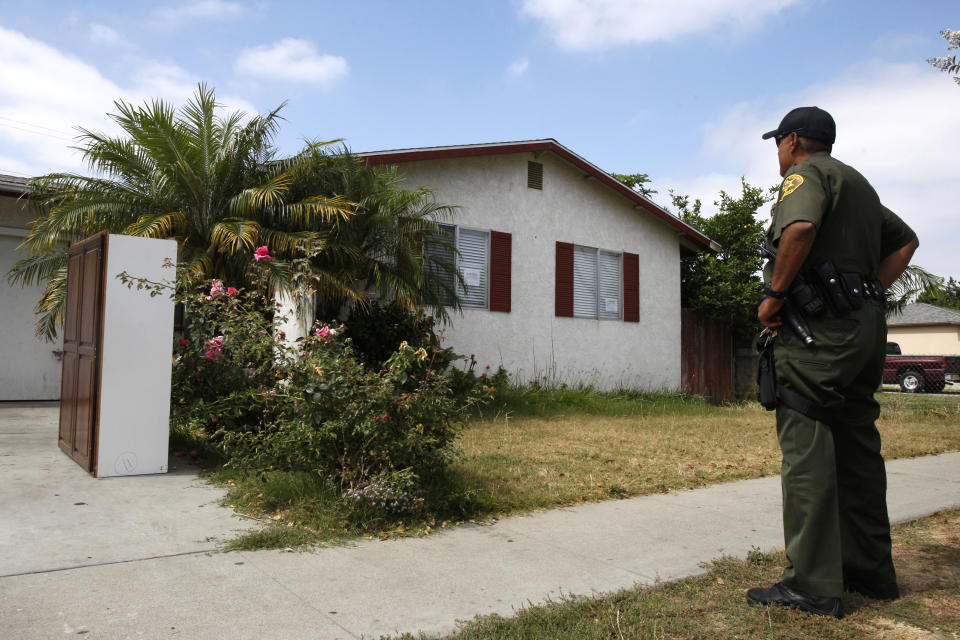Quarter of Americans are 'worse' now than before Great Recession: survey
The 10-year anniversary of the end of the Great Recession is approaching. A decade after the housing bust, the economy is robust and the unemployment rate is at a 49-year-low. But not all Americans have recovered.
According to a new survey from Bankrate of about 3,000 Americans, 23% of people who were adults when the recession started in December 2007 say they are now financially worse off than they were before the recession hit. That’s just under 50 million Americans. Another 25% say they are doing the “same.” In all, just over half believe their “overall finances” are better than before.

“Americans were and continue to be in a degree of denial of the financial crisis and Great Recession,” said Mark Hamrick, Bankrate’s senior economic analyst. “One of the constant themes that presents itself in the data is that Americans are still digging out in many ways from that experience.”
“While some have managed to prosper in the decade since, there are still tens of millions who are struggling to even get back to where they were before the economy took a turn for the worse.”
Women not keeping up
Complicating matters, not all the gains of the current bull market – which is over a decade old – have been distributed equally. While almost a third of women said their overall financial situation is worse now, less than a fifth of men said the same.
“On every metric, women were not keeping up with the improvement with men,” Hamrick explained. “That’s everything from wages, to retirement savings, to paying down debt, or the value of their homes. It’s rather depressing in that regard.”
This is in part due to the lack of wage gains, says Hamrick. Women, along with lower earners and those with only a high school diploma or less were all more likely to say they had lower wages now than before the recession hit.
When asked about their salaries, less than half of respondents said their wages were better than before, while more than a third say that it is worse. But if you’re a millennial (29-38) you’re in luck: Only 16% of this demographic who were adults during the Great Recession say their pay is worse now. That’s compared to 26% of baby boomers (aged 55-73).
“If you take this data at face value — where less than half of the adult population say that their pay is better — and most indicate it is not better, that tells you enough and raises enough of a question about the true improvement that Americans have experienced,” Hamrick said.

And according to the Economic Policy Institute (EPI), the biggest wage gains since the recession were made by the top 1%. Between 2009 and 2013, the average income of the top 1% grew by 17.4%, while the bottom 99% only saw wage growth of a paltry 0.7% during the same time period.
“In sum,” EPI notes, “the gains of the top 1% have vastly outpaced the gains for the bottom 99% as the economy has recovered.”
A financial scar
The study notes that over half of all Americans — 54% — who were adults when the recession began endured some sort of negative financial impact during that time.
More than 70% of those who had invested in the stock market saw their investments lose money while just under half of homeowners during the recession said their home lost value. A quarter completely spent their emergency savings, while a fifth took on “substantial” debt. More than 20% of those who had a partner who was working said either their partner or themselves lost their job.
Despite this, Hamrick doesn’t believe the recession will have a permanent financial impact for the majority of people.
“There’s no doubt it was a setback for many Americans,” he said. “You may recover from the injury but you may have a scar.”
And while the economy is doing well, Hamrick says improvements can be made through “good financial decision making” where people have options. And according to the data, Americans have adjusted their financial habits.
The study notes that “the most common post-Recession response among all U.S. adults is focusing on paying down debt.” Total U.S. household debt increased for the 19th consecutive quarter to $13.67 trillion, as of May, boosted by increases in mortgage, auto and student loan balances, and is now $993 billion higher than the peak of $12.68 trillion in the third quarter of 2008, according to the New York Fed.
Roughly a third of all American adults are trying to reduce their debt loads while 23% are saving more for emergencies. Nearly 20% say they are saving more for retirement. Others said they were trying to find better jobs, investing less in the stock market, and took on more affordable homes and mortgages.
Kristin Myers is a reporter at Yahoo Finance. Follow her on Twitter.
Read more:
Over half of parents willing to go into debt to pay children’s college tuition
Corporations paid $91 billion less in taxes in 2018 under Trump's tax law
Not just Amazon: 60 big companies paid $0 in taxes under Trump law
Read the latest financial and business news from Yahoo Finance
Follow Yahoo Finance on Twitter, Facebook, Instagram, Flipboard, LinkedIn, YouTube, and reddit.

